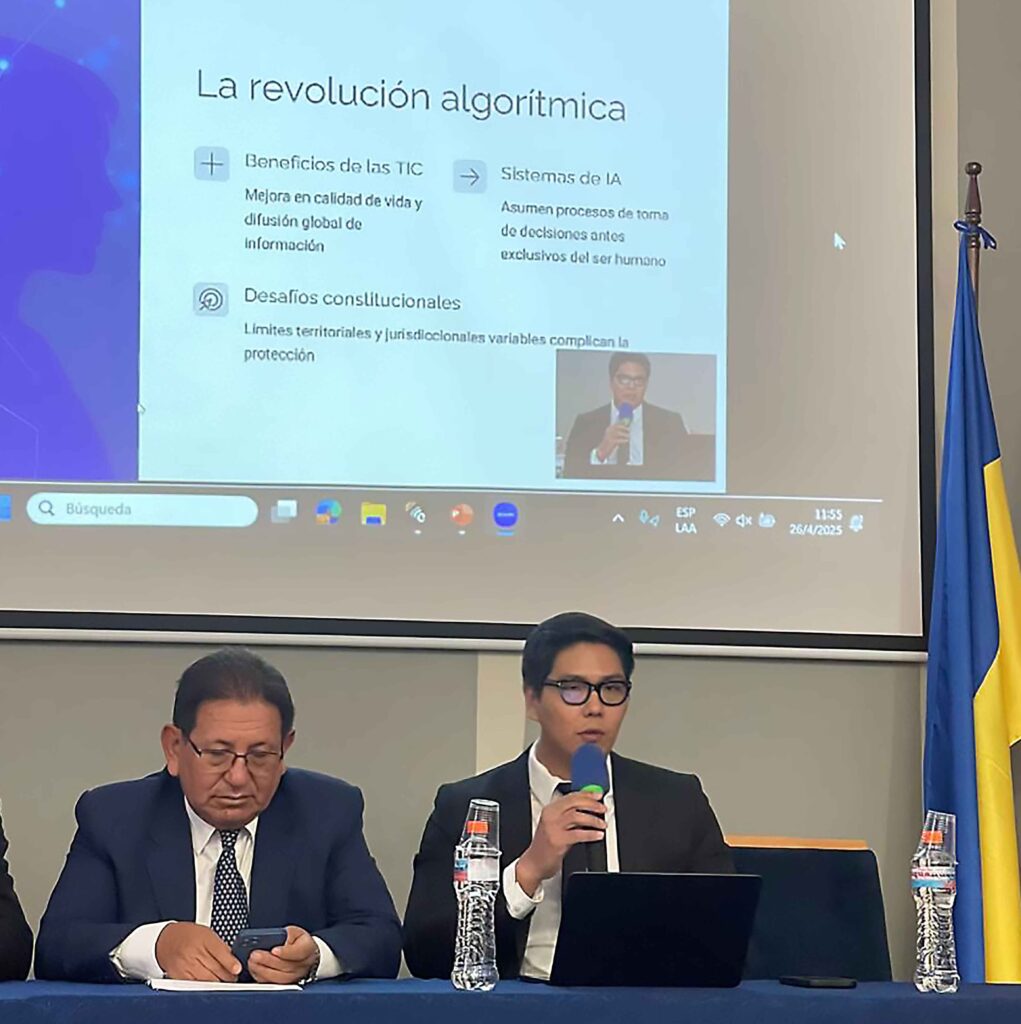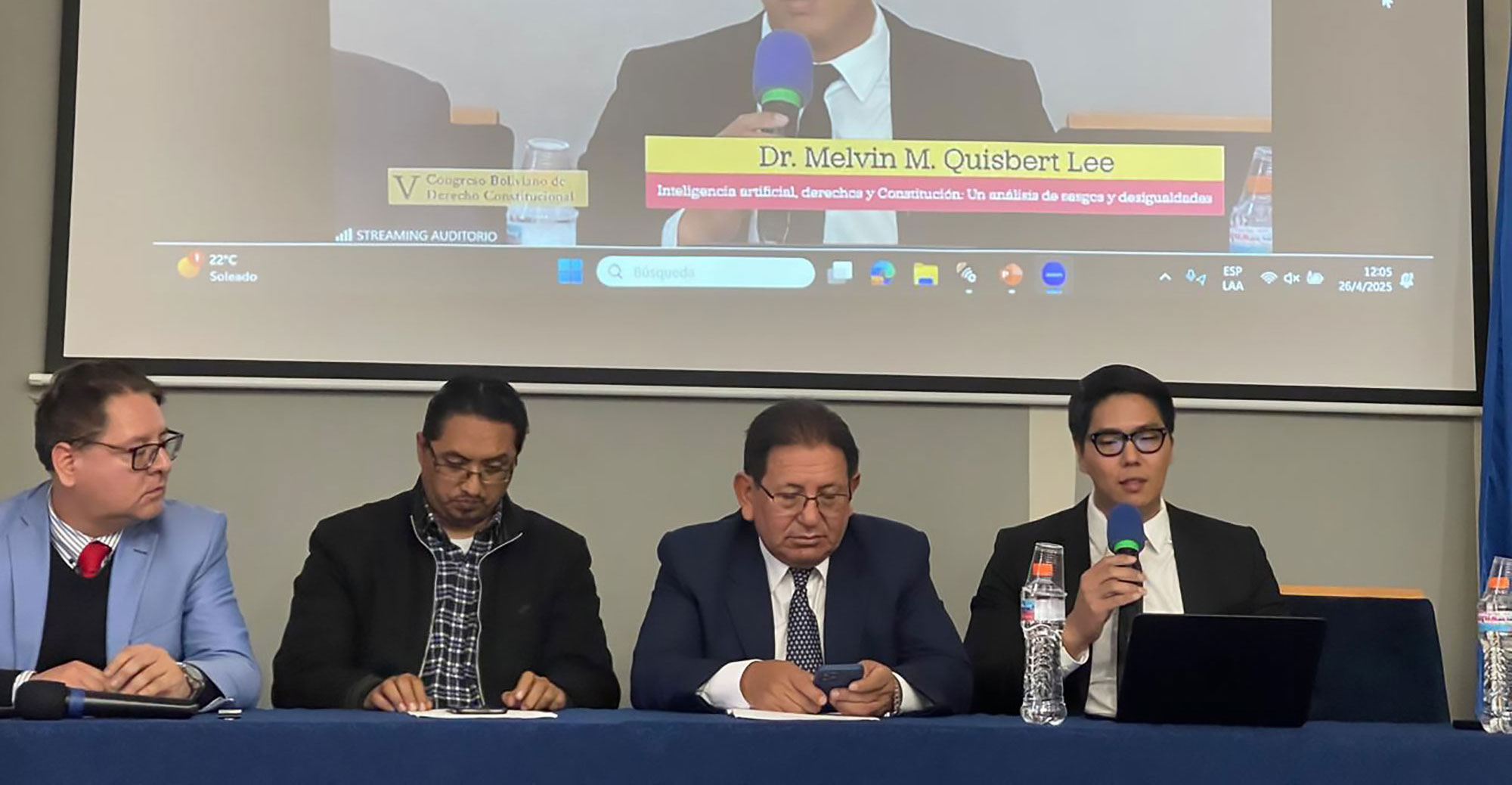To commemorate the 200th anniversary of Bolivia’s Declaration of Independence, the city of Sucre became the epicenter of Bolivian constitutional legal thought by hosting the V Bolivian Congress on Constitutional Law. Held from April 25 to 26, the event, themed “200 years of constitutionalism: new challenges for the 21st century,” covened at least 248 participants, including academics, practicing lawyers, and students.
In this context of high-level and diverse academic reflection, I presented my research, “Artificial intelligence, rights, and the Constitution: An analysis of biases and inequalities,” to the Artificial Intelligence Panel. My work addresses the critical problems that algorithmic systems pose to equality and non-discrimination.
My presentation offered a brief introduction to the concept of the “algorithmic society,” a framework that challenges the classic model of constitutionalism focused solely on public power (Micklitz et al., 2022). Today, private entities like tech companies and platforms undertake activities that profoundly affect fundamental rights, expanding the traditional scope of constitutional concern.
Furthermore, AI does not produce “neutral” results, but rather it has the potential to reproduce prejudices often amplifying the biases within its datasets. These algorithmic biases manifest in various forms (e.g. racism, sexism, ageism and ableism) impacting tangible aspects of life such as employment, health, finance, and justice.
Although the Political Constitution of the Plurinational State of Bolivia guarantees the right to equality and prohibits discrimination (Art. 14.II), there is a gap between law and reality. National indicators on equal treatment are worrying, and it is revealing that by 2022, only three discrimination cases had ever reached a final ruling.

This scenario compels a critical question that I addressed in my presentation: in a context of such profound existing inequality, is it worth prioritizing the fight for non-discrimination in AI?
I am grateful to the Catholic University of La Plata for providing us with such an enriching space for the exchange of ideas with the academic community, and to the Bolivian Academy of Constitutional Studies, which organized and ran the event and constantly promotes academic debate on current issues such as the intersection between technology and law.
References
- Micklitz, H.-W., Pollicino, O., Reichman, A., Simoncini, A., Sartor, G., & Gregorio, G. D. (2022). Constitutional Challenges in the Algorithmic Society. Cambridge University Press.

